The Wild History of Not Eating Meat
Alicia Kennedy’s debut book tackles punk restaurants, underground vegan zines, and Silicon Valley.
In her debut book, No Meat Required: The Cultural History & Culinary Future of Plant-Based Eating, Alicia Kennedy has written a manifesto—but, crucially, not a diatribe. More than half a century after Diet for a Small Planet—Frances Moore Lappé’s influential work on the need to reduce animal consumption—Kennedy makes a case for radically rethinking the place of meat in our warming world.
She has no intention of convincing all of her readers to go vegan or to adhere to the kind of moral puritanism with which the movement has often been wrongly associated. Instead, she takes an incisive look at the good, the bad, and the bizarre across the history of abstaining from meat, from religious sects to raw vegans, from toxic wellness culture to Silicon Valley–backed lab-grown meats.
While she does not discount Impossible Burgers and big alt-dairy, her heart is clearly with the punks and the underdogs. Her pages light up when describing Lagusta Yearwood, who practices “activism through hedonism” at her vegan chocolate shop that sells pink peppercorn–tinged “Furious Vulvas” and other truffles; the Bloodroot Collective, an ecofeminist restaurant from the ’70s whose ethos is “meant to evoke comfort, promote consciousness, and community”; and the vegan zines of the early aughts, each crammed with cheap-print pages of erotica, recipes, and proclamations like “Veganism … is a great way to say Fuck You! to the powers that be and their advertisers.”
Through her weekly newsletter and other writing, Kennedy has been one of the most prominent voices in this space for more than a decade, in part because she writes about plant-based foods in a way that manages to feel both inclusive and wildly delicious. Although Kennedy’s work is rooted in exhaustive research, it is her personal experience, as well as the clarity and empathy of her voice that give this slender volume its power.
Gastro Obscura spoke with Kennedy about veggie burgers that bleed, restaurants keeping it punk, and what’s most exciting to her about American plant-based cuisine right now.

In your book, you challenge the way that so much of the mainstream discourse on vegetarianism has been very monolithic and very white. Why do you feel that is not representative of the actual history?
I think the reason it’s been so easy to dismiss vegetarianism and veganism is this idea that it’s for a very specific milieu, that if you don’t have the same ideas or the same life experience or the same income, it’s not for you. It’s all part of the same expression of flattening what it means to give up meat in the U.S. into one little stereotype. And that stereotype is damaging not just because of how it makes plant-based eating unappealing to a broader swath of people, but because of who it erases in the process of doing that.
I finished the book on an optimistic note about how many more vegan and vegetarian cookbooks are coming out from different non-European cuisines. I think we’ve even seen more of that happen in the intervening years. It’s really become a moment for plant-based food to break out of this Americanized scope of comfort food, which is where it’s been stuck a little bit— just like, “Well, here’s how to make a vegan cupcake.”
Now we’re seeing this whole brand-new scope of things. During the last two years of the James Beard Awards, the “Vegetable-Focused Cooking” award has gone to The Korean Vegan and The Vegan Chinese Kitchen. Then there’s Sheil Shukla’s Plant-Based India and Denai Moore’s Plentiful: Vegan Jamaican Recipes to Repeat, and Terry Sargent’s vegan barbecue, too. Black Rican Vegan just came out.
A lot of these cookbooks are trying to tell a bigger story about vegetarian and vegan food. They all have a political or ideological angle, which is great, but I think that’s changing, too. It’s becoming a style of eating or a way of eating that can stand on its own as cuisine rather than having to have that ideological backup. That comes with the diversification of who gets to write about it, who gets to claim it.
What does decolonizing your lifestyle maybe mean to you?
I am a little hesitant to use decolonize as a metaphor, but I do think about the framework presented in Decolonize Your Diet, about what it means to dig deeper into what people were eating before settler colonialism in Puerto Rico. When we go back to before Spain got here [Kennedy lives in San Juan, Puerto Rico], it’s a lot of root vegetables. It’s a lot of seafood because the interior terrain of the island would have been very difficult to traverse. But a lot of folks would think of Puerto Rican food as lechon, pork and rice and beans. Those things are present, of course, and those are significant. But if we go back even further to what the Arawak people were eating, we see something a little bit different.
All the studies say that to return to more of the practices that were part of Indigenous people’s agriculture would increase biodiversity and decrease emissions. So when we are decolonizing our diets, we’re looking backward. It’s about cultural tradition and holding on to those things and keeping ancestral traditions alive. But it’s also about how we can incorporate these things in a way that supports the ecosystem in the best possible way.
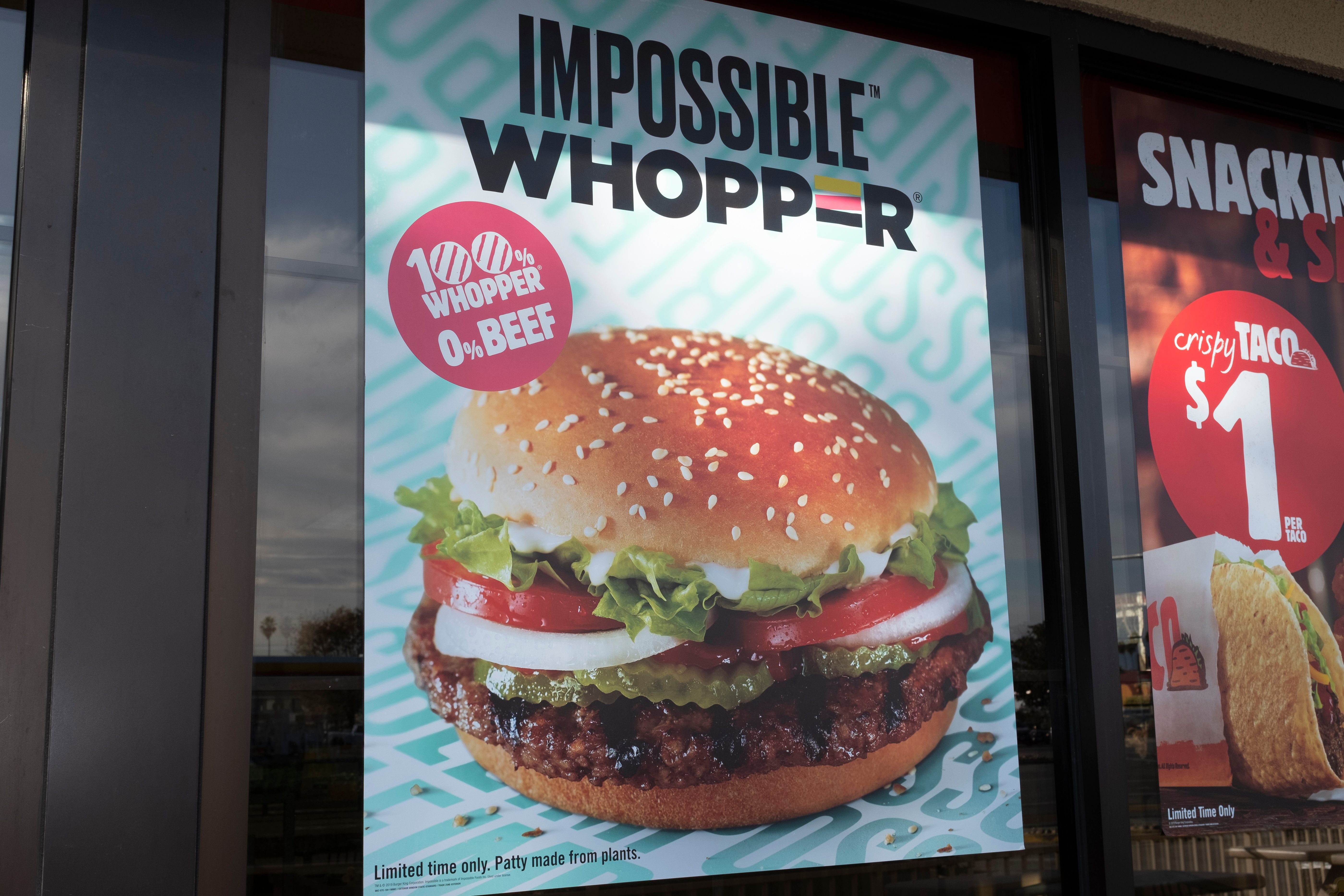
So much of the press around plant-based eating has focused on “veggie burgers that bleed,” as you put it, and lab-grown meat and other Silicon Valley–backed tech which you address, but you do not seem wildly excited about it. Could you tell me maybe why you don’t think that is necessarily the future we should be building?
I don’t believe in food being intellectual property that someone can own and profit from and control access to. I think the media coverage has been very detached and very naive in terms of whether these companies really care whether their products have good or bad impacts on everything from ecology to labor rights, as well as whether or not these things will really be healthful and nutritious in the long term.
It’s a dangerous road to go down because we have all of this food that we already know how to grow. These things, you can’t own them. We’ve seen dangerous things happen with the Green Revolution and genetically-modified seeds. We’ve seen farmers in Africa be sold seeds because they’ll have a higher yield. Then that means that they’re beholden to continue buying from these companies, whether it’s their pesticides or new seeds. Because they can’t save seeds in the way that people have saved seeds for generations.
If we look at how big agribusiness and the copyrighting of genetic material of our food has had a detrimental impact on cultures and farmers, we can extrapolate that it’s not a good idea to make our food into intellectual property and technology that can be bought and sold.
You write about the punk roots of veganism—the zines, the more DIY spaces and restaurants. What makes a restaurant punk to you?
It’s one of those intangible things where you just feel it. I went to Superiority Burger [Brooks Headley’s vegetarian restaurant] last week in the East Village and it was my first time at the new one since it’s been open. I was really afraid of going, frankly, because I was like, What if the spark is gone?
Then I walked in and it’s still exactly what it needs to be. I literally had tears in my eyes. I was just like, this is a classic diner and there’s a wait for tables and there’s no meat here. The audience is right there for it. It felt like such a radical moment.
When a restaurant is punk, it feels like it exists because it has to, not because someone wanted it to. It’s similar to the feminist restaurants where they emerged out of a real need and not because of someone’s chef-y ego. It retains this kind of sense of spontaneity, but also just necessity and hospitality.
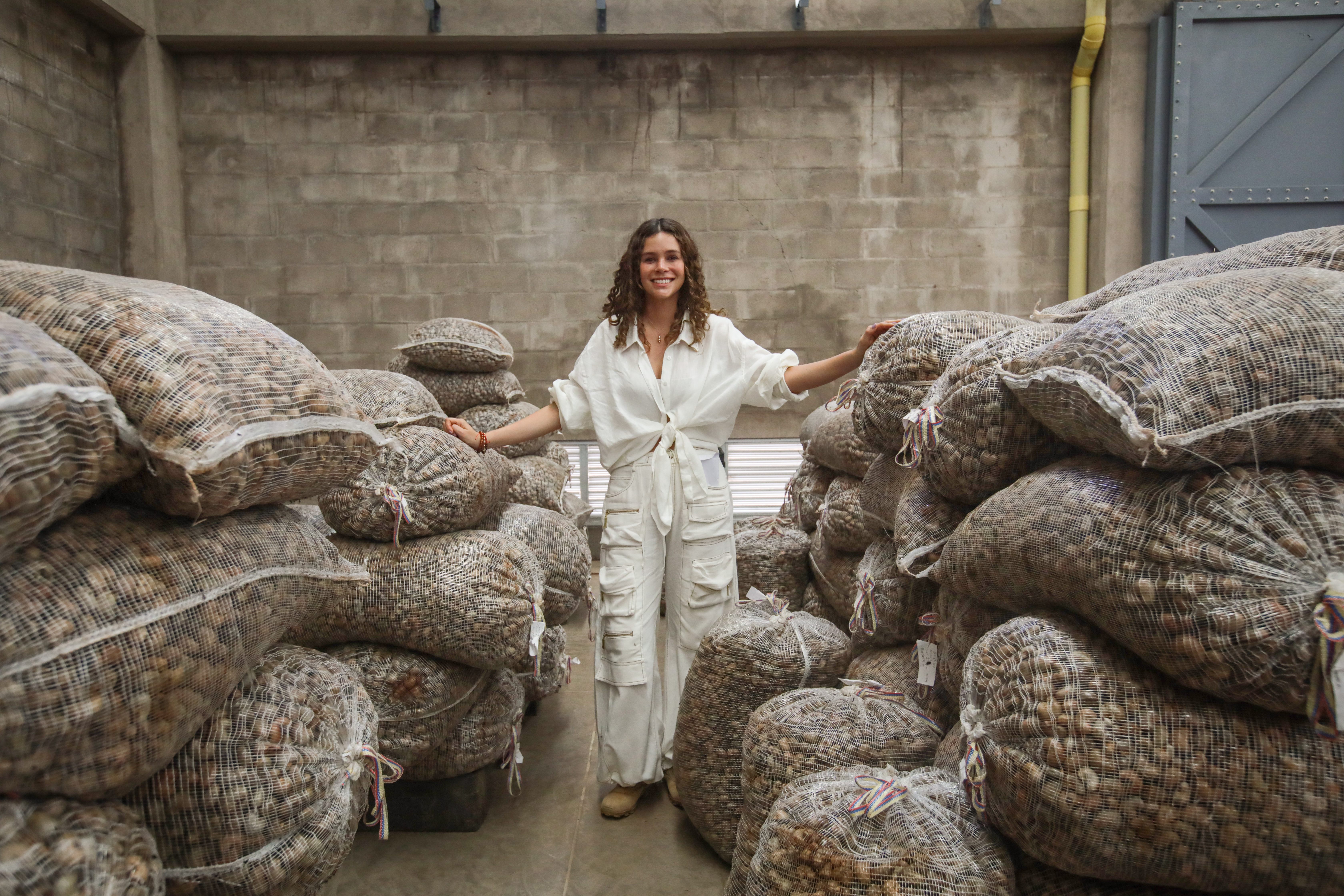
You point out in the book that vegan and vegetarian food-makers are held to much higher ethical standards than their omnivore equivalents. Do you think that should be the case?
I don’t know if people should be more angry with vegan and vegetarian chefs for using a badly sourced or opaquely sourced ingredient than they would with an omnivore chef. But at the same time, I do think there is a good case for sourcing and labor rights being part of the conversation when it comes to vegan and vegetarian food. If you’re making a choice around ethics in one way, why would you also get your cashews from somewhere and not know whether someone’s fingers were burned while shelling them?
You’ve been vegan or vegetarian for much of your life. How has that experience shaped your worldview and how do you deal with people scrutinizing your personal dietary choices in relation to your work?
If I was an omnivorous traditional food writer, no one would call any of that into question. I’ve put myself in this position of being very open about not eating meat. I try to make it clear that I am also not prescribing anything for everyone. Just because I don’t eat meat doesn’t mean there isn’t a way for other people to eat meat in a sustainable way that does function.
It’s a big deal to claim vegan as an identity. It is a big deal to claim vegetarian as an identity. Because you are held up to everyone’s scrutiny around what you eat, what you wear, and what that means versus no one’s really scrutinizing people who are eating meat every day in the same way.
It’s a difficult space to occupy. I think more than anything, I’m stressed about vegans being mad at me all the time. But yeah, it comes with the territory that people are going to scrutinize my personal food choices and that’s completely fine. No one will ever catch me eating a steak, so I don’t really care.
How do you square the different approaches of a radical feminist restaurant like Bloodroot Collective—where the food is simple so that anyone can make it—versus more technically sophisticated, chef-driven vegetarian spots like Superiority Burger?
Bloodroot Collective has been open for 40-something years. Clearly, it’s serving a demographic, it’s serving a community. Then you take Pietramala, in Philadelphia, which is doing the most ambitious vegan food I have ever seen. These kinds of places serve to move the conversation forward and also to move the food forward.
Everything has gotten so much better from when I stopped eating meat in 2011. I couldn’t have fathomed a place like Pietramala, where they’re making tofu in-house, they’re aging it, they’re using it like Parmesan. I think there’s room for the junk food and there’s room for high-end vegan cuisine.
If we remain stuck in this kind of Candle 79 ’90s vegan moment, that’s not going to bring people in. That you can map that farm-to-table, sometimes highly technical approach onto plant-based food proves that this is not just a trend. It’s really formed into a cuisine.
This interview has been edited and condensed.
Gastro Obscura covers the world’s most wondrous food and drink.
Sign up for our regular newsletter.



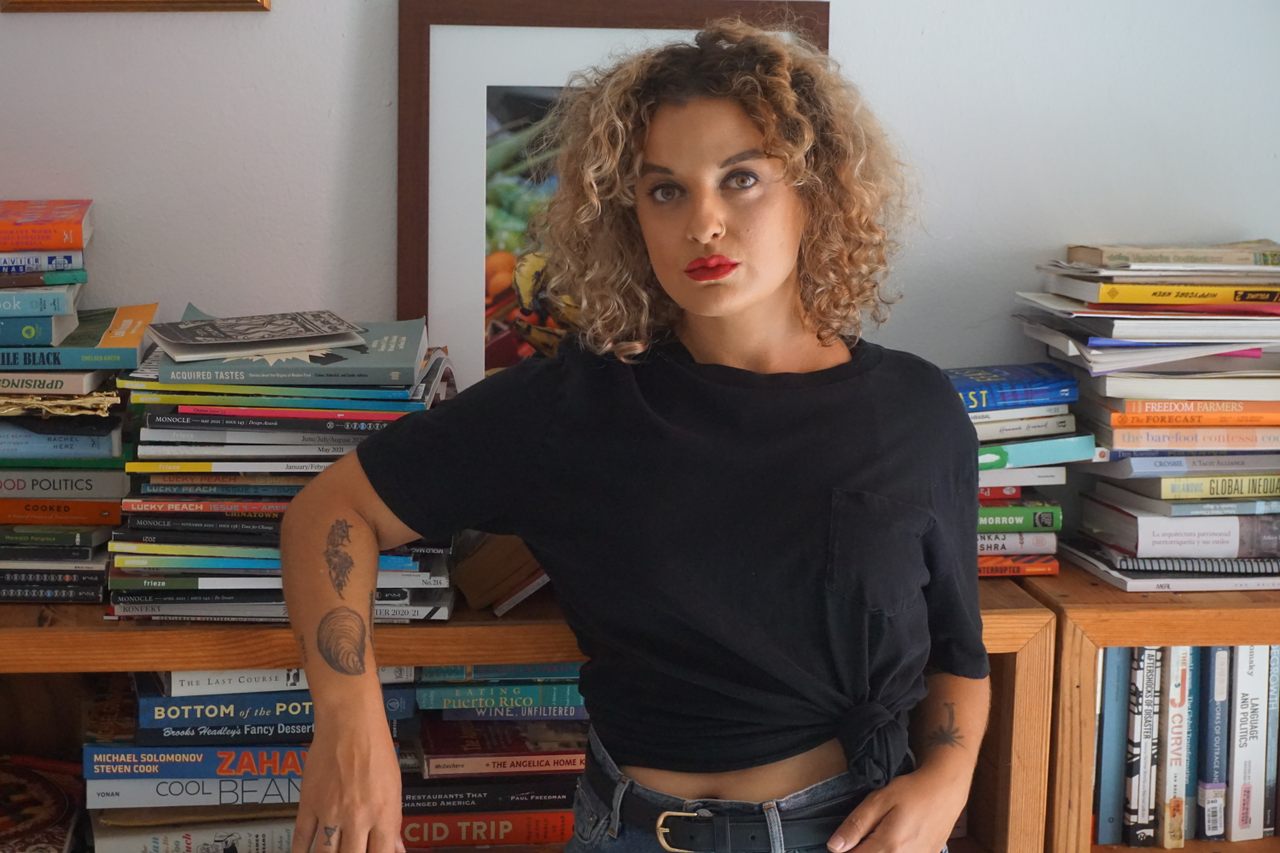
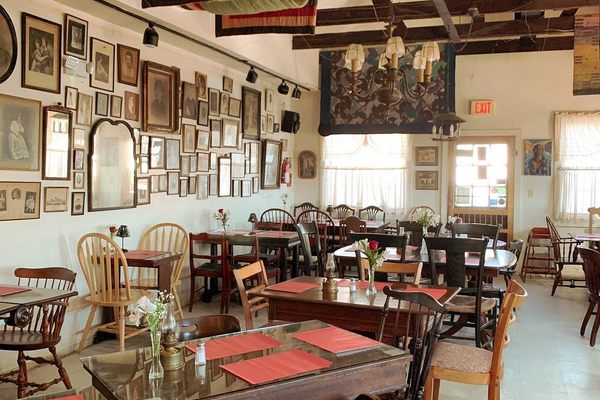



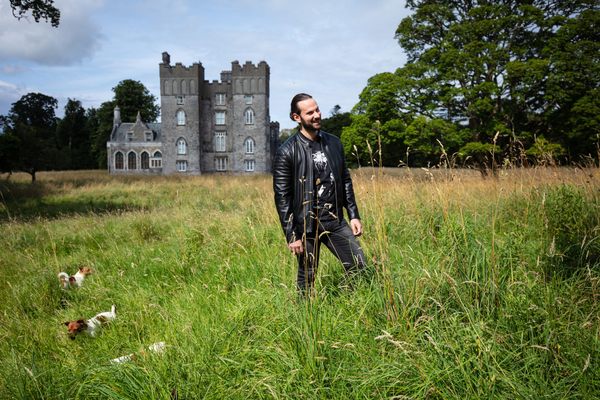





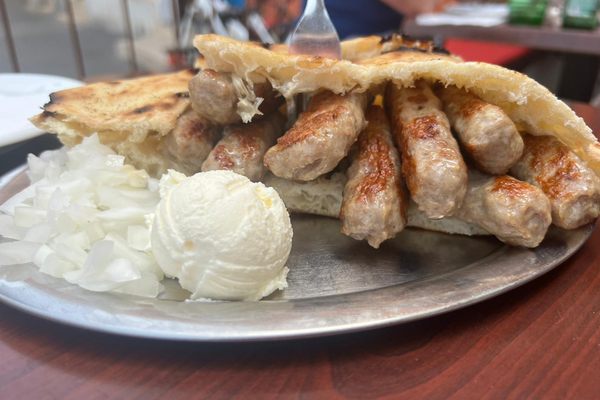





Follow us on Twitter to get the latest on the world's hidden wonders.
Like us on Facebook to get the latest on the world's hidden wonders.
Follow us on Twitter Like us on Facebook